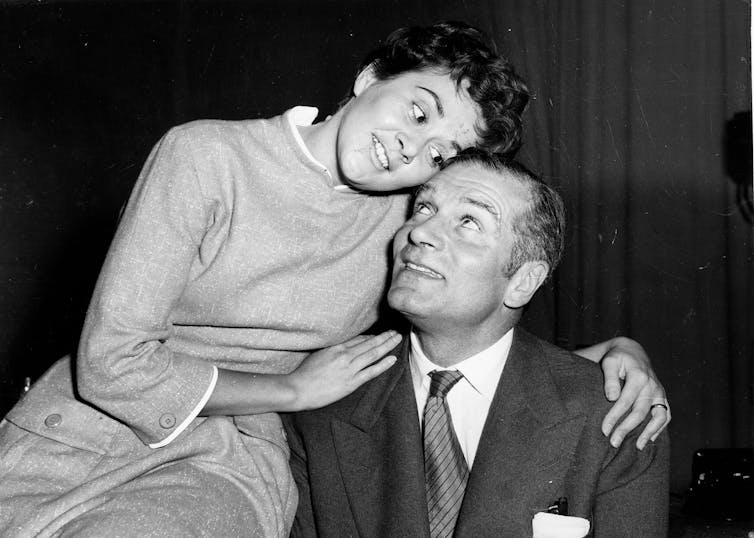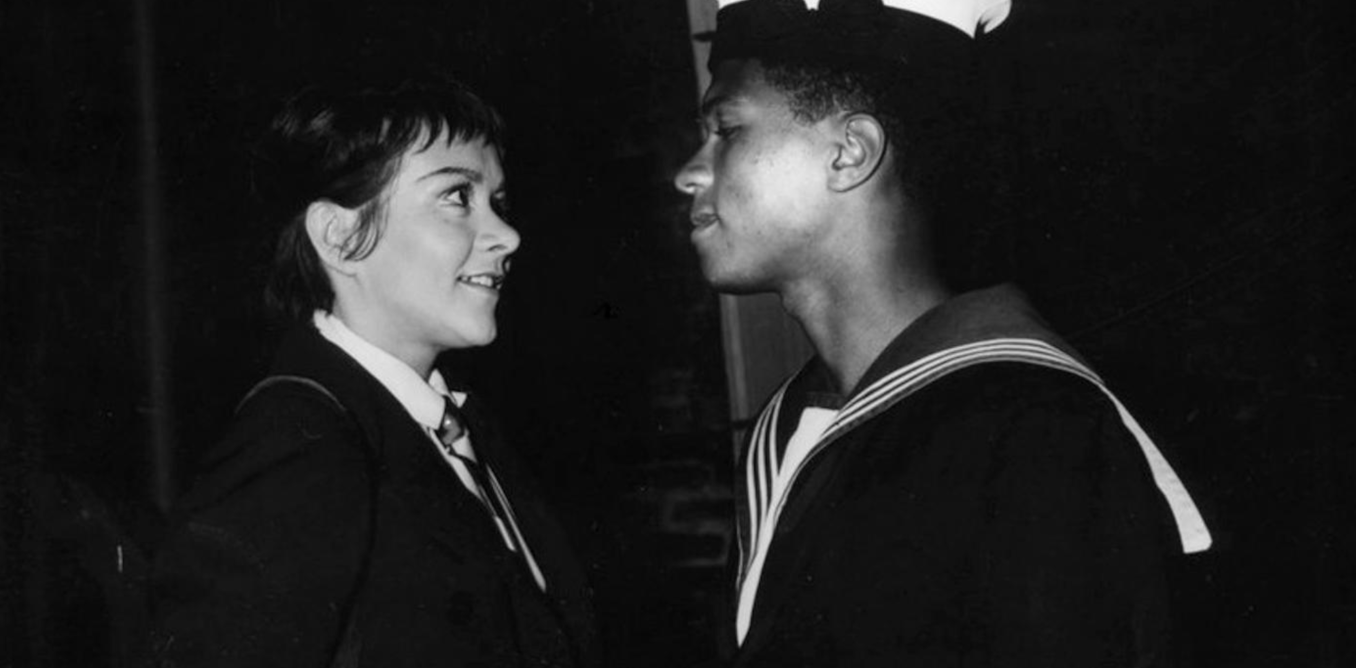Dame Joan Plowright, who has died aged 95, was an actress of enormous and wide-ranging talent across a 60-year stage and screen career. Plowright was “perhaps the greatest Anglophone actor of the 20th century”, in Variety’s words. She was certainly a leading pioneer in post-war British theatre’s modernisation – particularly in terms of her theatrical style, as well as her geographic and class origins.
Raised in a middle-class family in Scunthorpe, northern England, Plowright’s theatrical credentials were already dubious according to snobbish metropolitan attitudes of the time, and were weakened further by her unfashionably plump face. “You’re no oil painting,” her mother commented, “but you’ve got the spark. Just thank God you’ve got my legs, and not your father’s.”
An early agent disparaged the name “Plowright” as sounding like “trade… ploughs and agriculture”, and suggested an alternative like Desiree Day. Plowright kept her name and changed her agent.
She trained at the Old Vic Theatre School in London, where instruction was classical – shaped by William Shakespeare, Henrik Ibsen and Anton Chekhov. But it was also, importantly, rigorous and modernising, drawing on the pioneering work of Konstantin Stanislavski – a Russian actor and theatre maker who developed a method of acting based on “experiencing a role”.
The richness and innovation of her training meant that, even when playing classical parts like the title role of William Wycherley’s restoration comedy The Country Wife at London’s recently launched Royal Court Theatre in 1957, Plowright was admired for the funny and unpretentious “earthy vitality” of her character’s naïve, lusty enjoyment of city delights. She also shone in a range of radical new international works such as Arthur Miller’s The Crucible and Eugène Ionesco’s The Chairs.
Looking for something good? Cut through the noise with a carefully curated selection of the latest releases, live events and exhibitions, straight to your inbox every fortnight, on Fridays. Sign up here.
As she put it, “I was trained in classical theatre and made my name in contemporary theatre”, especially post-war British theatre’s kitchen sink realism. These were thoroughly modern dramas that revealed the disillusionment of Britain’s working class youth in the 1950s and 60s.
She starred in West Midlands-born John Osborne’s The Entertainer at the Royal Court in 1957 and its screen adaptation in 1960. In 1959, she played the lead in Roots by east London’s Arnold Wesker at Coventry’s Belgrade and London’s Royal Court and West End.

Keystone Press/Alamy
In 1960, she starred in the award-winning Broadway run of A Taste of Honey by Salford’s Shelagh Delaney. In this play, Plowright reported, for “apparently the first time […,] a white girl had kissed a black boy on stage”. To these plays, Plowright brought crucial cultural understanding from beyond the glamorous upper-class drawing rooms that dominated 1930s and 40s British drama.
In 1961, aged 31, Plowright married Sir (later Baron) Laurence Olivier, 22 years her senior and the de facto king of the British theatre establishment. He became the National Theatre’s (NT) first director the following year.
Her outsider spirit and links to the home of modern theatre writing, the Royal Court, facilitated the modernisation of the theatre establishment as she helped bring extensive expertise to the NT, right up to the level of Olivier’s assistant directors. She also helped persuade Olivier to hire the Observer newspaper reviewer Kenneth Tynan, a great advocate for new drama and against censorship, and a vocal critic of some of Olivier’s work.
While Plowright helped forge epochal aesthetic and class-based progress in post-war British theatre, that progress contrasts with enduring gender inequalities also illustrated by her career.
As an actress, Plowright acknowledged her rare privilege in being able to take time out to raise children. “By the time I married Larry […] I’d won my awards. […] Only then was I ready to have babies.” Acting in repertoire, she could balance part-time work with childcare and afford to pay for help with the house and children. “I was enormously lucky”, she said. But as the advocacy organisation Parents and Carers in Performing Arts makes clear, the inequalities Plowright recognised then persist today.
While Plowright wanted children, pregnancies meant, as she put it, “I missed out on one of the best roles you could ever have, in Happy Days” by Samuel Beckett. Some see her time out as especially detrimental to her film career.
Also, while Plowright had some influence on Olivier, she had to negotiate around him and concede to him too. “He has extremes of behaviour”, she said. “You just find a way not to be swept overboard by his demons.”
During his tenure as NT Director, she turned down work there to avoid criticisms of nepotism. But even during the NT’s subsequent directorship by his rival Peter Hall, she declined work there when Olivier threatened divorce, reportedly declaring, “No wife of mine will appear at Peter Hall’s National Theatre.”
Plowright’s career also demonstrates that the theatre industry’s progress on diversity is still limited in relation to disability. She reports first having acute problems with macular degeneration in 1992, but she continued to act and only announced retirement due to blindness in 2014.
Negotiating acting with increasing visual impairment required some reasonable adjustments but also “discretion” and downright subterfuge. “There comes the time,” she says, “when you think, ‘Do I let people know about this or not?’ And in our profession, of course, it’s better not to if you can manage because then you still get more parts to play.”
Advocacy for necessary change around gender and disability as well as race will continue with future generations of actors. Joan Plowright’s legacy as one of the most subtly powerful inventors of the class revolution of post-war British theatre is secure.

